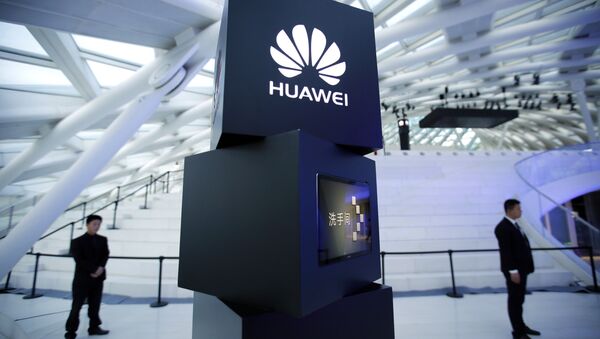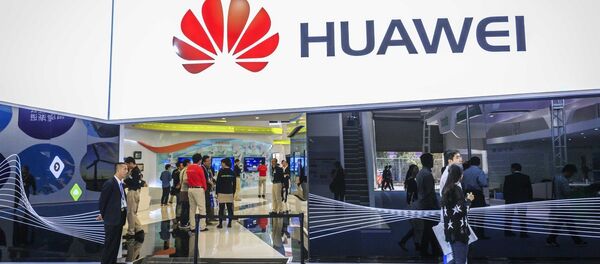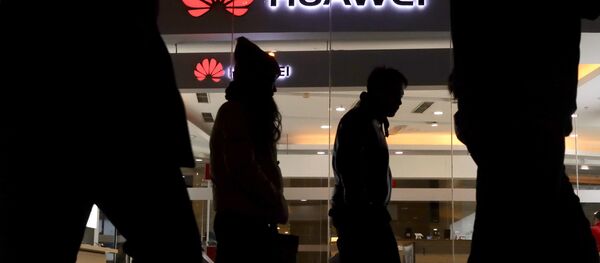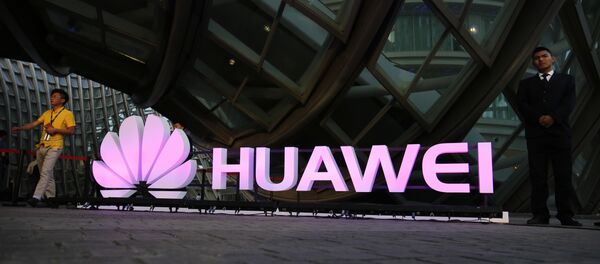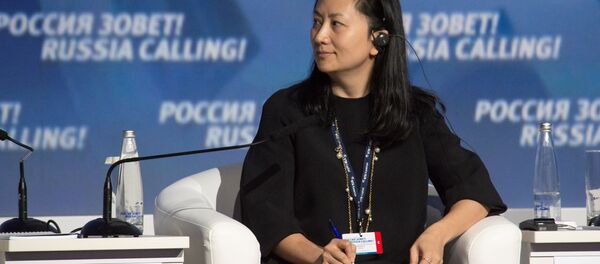"The attack by US and other countries' intelligence agencies is not based on real national security concerns, but is meant to crowd out Huawei and create unfair competition conditions to benefit their own domestic telecom equipment companies," Chinese Ambassador to Canada Lu Shaye said, the Ottawa-based The Hill Times newspaper wrote on Wednesday. The company's Chief Financial Officer, Meng Wanzhou, was arrested in Canada late last year and it was revealed Friday that Ottawa will permit her extradition to the US, where she faces charges for financial crimes that both she and Beijing strenuously deny.
For months, Washington has been beating the drums of fear about the supposed dangers posed by Huawei, the world's second-largest cell phone maker, ahead of US-based Apple and behind only the South Korean tech giant Samsung.
"I would counsel the government to forbid the use of Huawei equipment in the development of our 5G network," Richard Fadden, a former director of the Canadian Security Intelligence Service, told the New York Times for a Wednesday story. Fadden said Huawei represents a clear cybersecurity threat, since Chinese companies like Huawei could be ordered by Beijing to collect and turn over intellectual property and intelligence collected in Western countries.
Several countries, including all of the other so-called "Five Eyes" nations — US, UK, Australia and New Zealand — have followed Washington's cues and banned Huawei from development of their 5G networks. The fifth member, Canada, hasn't arrived at a decision yet, the South China Morning Post reported. Other European Union countries, such as Norway, Poland and the Czech Republic, have also voiced concerns about security risks posed by Huawei and other Chinese tech firms, including ZTE.
Execs Dismiss Backdoor Claims
However, Huawei executives have dismissed these concerns as well as claims that the company is at the beck and call of the Chinese state.
"On issues of cybersecurity, Huawei would never do anything to harm any country, any organization or any individual," Huawei chairman Liang Hua said at a press conference last week in Toronto, noting that there is no law requiring Chinese companies "to install back doors or collect foreign intelligence."
Further, Liang said that if Beijing made such a request, his company wouldn't honor it, because the law doesn't require it.
Earlier this week, China's ambassador to the European Union, Zhang Ming, called attempts to block Hauwei's access to markets there a 5G "iron curtain."
"5G technology will create the era of ‘Internet of Everything,' which will be closely related to all aspects of human life in the future. It's normal for there to be widespread concern over its security. No responsible country will be naive on this issue," Zhang said in a Tuesday opinion piece on Euractiv.
Huawei's pushback extended into the Wall Street Journal Thursday, too, where it took out a full-page ad in the form of an open letter, titled "Don't believe everything you hear," from Huawei's Senior Vice President and Board Director Catherine Chen to curious would-be US customers.
Huawei has a full page ad in today’s @WSJ. Starts and ends with “Don’t believe everything you hear” pic.twitter.com/gfqwtnxSOa
— Adam Janofsky (@AdamJanofsky) February 28, 2019
Civilians don't seem to share the security concerns of intelligence agencies, though. Wesley Wark, an intelligence expert at the University of Ottawa, said "scaremongering" about Huawei was misplaced, since universities typically aren't very guarded about their scholarship, and both China and Huawei stand to lose far more than they could ever gain if they spied on Western nations and got caught doing so.
"Our research is not happening in the shadows," John-Paul Heale, who oversees company-sponsored research at the University of British Columbia, told the Times, noting that all research has to be published in peer-reviewed journals anyway.
One radio station owner in British Columbia said Huawei's network helps his business save $20,000 a year because he no longer has to travel 45 minutes each day to reach a town with an internet connection fast enough to carry his station.
"There are fears that China is corrupt and watching what we do, and some people are scared they could spy on us," he said. "But I'm not worried about that. What matters to me is getting high-speed internet."
Legal Pressures
While Huawei faces multiple charges in US courts, the imminent decision on Canada's extradition of Meng, the company's CFO and daughter of its founder, Ren Zhengfei, has been a motivating factor in recent days for a more stolid defense of the company.
Meng is wanted in the United States, where she is accused of 13 charges, including "conspiracy to defraud multiple international institutions" and violating US trade sanctions against Iran.
Canada's Department of Justice announced Friday it would acquiesce to US extradition requests, Sputnik reported. Meng's extradition hearing is scheduled for March 6.
However, Huawei also faces legal battles in other spheres in the US, where it was charged Friday with attempted theft of trade secrets and wire fraud, Sputnik reported.
"Huawei Device Co., Ltd. and Huawei Device USA Inc. were arraigned today on charges of theft of trade secrets conspiracy, attempted theft of trade secrets, seven counts of wire fraud, and one count of obstruction of justice," said a Thursday press release by the US Department of Justice. "The companies entered pleas of ‘not guilty.'"
The trade secrets case was brought in a US federal court in Seattle, Washington, on January 28, and the case against Meng was unsealed on the same day in New York. In the Seattle case, the US government claims Huawei stole trade secrets behind a robotic arm used by T-Mobile, a foreign market subsidiary of German tech firm Deutsche Telekom AG that sells in other European countries but also the US, to simulate human touch during smartphone testing. The court document claims Huawei made an all-out effort in 2012 to gather technical specs, photographs and other system details about the robot, nicknamed "Tappy."
The trial date was set Friday for March 2, 2020, by Chief Judge Ricardo S. Martinez of the US District Court for the Western District of Washington, the Washington Post reported.
The other case is that against Meng, brought in New York. The indictment names Meng as a board member of Skycom, a subsidiary of Huawei registered in Hong Kong that functioned as Huawei's subsidiary in Iran. The indictment alleges conspiracy to commit bank fraud and wire fraud, and to defraud the United States, saying that Skycom systematically lied to US financial institutions about doing business in Iran while that country was under US trade sanctions, and that both Skycom and Huawei misrepresented their relationship to those institutions.
While unnamed in the indictment, one bank is known to be the Hong Kong and Shanghai Banking Corporation (HSBC), as a 2016 DOJ probe into the bank's own alleged misconduct involving US sanctions uncovered the evidence leading to the indictment, according to Reuters, citing internal HSBC documents it viewed.

